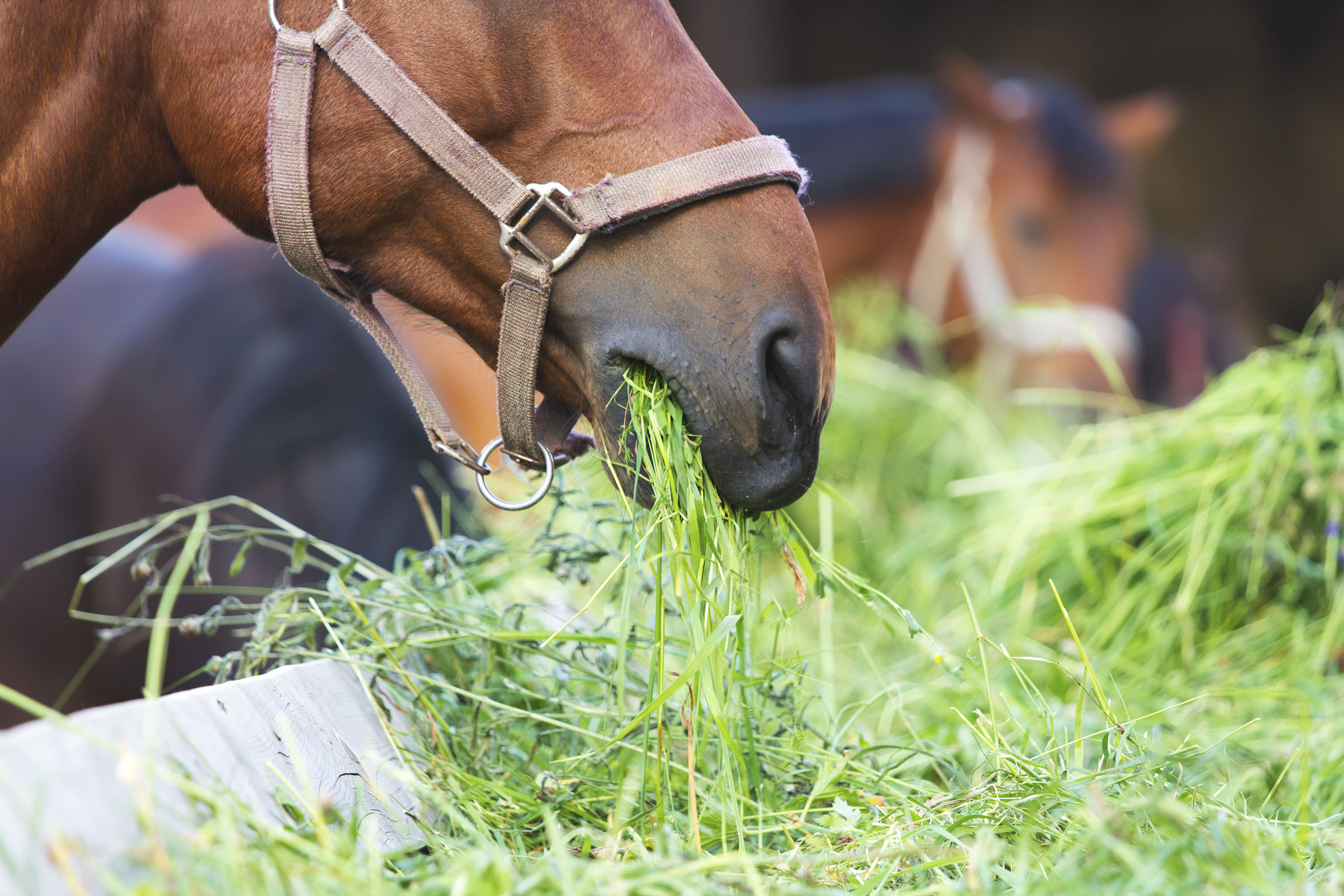
Most endurance rides range in distance from 25 miles to 100 miles. Depending on the terrain, distance and the speed at which the horse is ridden, endurance rides can take anywhere from three to 24 hours to complete a competition. Given the amount of time necessary to complete an endurance ride, it provides a tremendous opportunity for nutrition to influence the performance of an endurance horse. In addition, endurance horses are routinely rested and fed during the ride, further increasing the potential for nutrition to impact performance.
Feeding the endurance horse does not need to be complicated. Several nutrients are critical, in that they directly influence the ability of the horse to complete the ride. The critical nutrients to consider include energy, electrolytes and water.
Energy provides the calories necessary for muscle contraction which ultimately allows the horse to move. Energy is obtained from several dietary sources that are broken down within the digestive system. Endurance horses metabolize starch, fat, fiber and protein to form energy. The primary source of starch in the horses’ diet originates from grain (oats, maize, barley). Starch is broken down in the small intestine and absorbed as glucose. The glucose is stored as muscle and liver glycogen that can be broken down during exercise to fuel muscle contraction. Care must be taken to ensure that too much starch (grain) is not fed in a single meal since large grain meals can result in digestive upset.
Vegetable oil, including rice oil and soybean oil, are the most common sources of fat in the horse’s diet. Fat has the advantage of being a very concentrated energy source, containing more than 2.25 times as much energy as an equal weight of maize, oats or barley. Fat is a popular ingredient in the diets for endurance horses, since it is highly digestible, provides a large amount of calories and it does not result in digestive upset. Fat is particularly useful in keeping horses from becoming too thin. Adding fat will increase the energy density of the diet so that less feed is required to maintain body weight. Fiber such as hay, pasture and chaff, is another source of energy for the endurance horse.
Fiber is fermented by bacteria in the back portion of the digestive system forming end products that the horse converts into energy. Fiber is critical to the health of the endurance horse, since fiber stimulates the horse to drink water and helps to maintain digestive function. Fiber also serves as a fluid and electrolyte reserve for the endurance horse. New fibers are now being utilized in endurance horse diets which contain even more calories than hay, pasture or chaff. These fiber sources are called super fibers and include such things as beet pulp and soybean hulls.
Protein can be utilized as an energy source for endurance horses, but it is inefficient and results in the accumulation of ammonia which must be urinated out of the body. This increased urination puts even more stress on the ability of the endurance horse to drink enough water.
Water and electrolytes are also critical dietary components for the endurance horse. Endurance horses cool themselves by dissipating heat through sweat. This results in both loss of fluid and electrolytes. Both of these components must be replaced if the horse is going to continue exercising. It is standard for endurance horses to have multiple opportunities to drink water. In fact, water should never be restricted for endurance horses.
Electrolytes are charged particles, including sodium, potassium, chloride, calcium and magnesium. These particles control, among other things, nerve and muscle function in the body. Loss of electrolytes causes fatigue, muscle weakness and decreases the thirst response from dehydration. Therefore, it is vital to replace electrolyte losses in endurance horses.
For more information on feeding endurance horses from Standlee Forage, please visit StandleeForage.com.
This article was authored by Dr. Stephen Duren, MS, PhD, PAS, Equine Nutrition & Exercise Physiology, Standlee Premium Western Forage, Performance Horse Nutrition.


